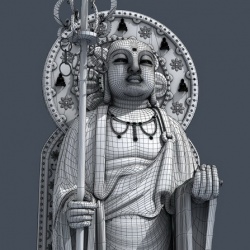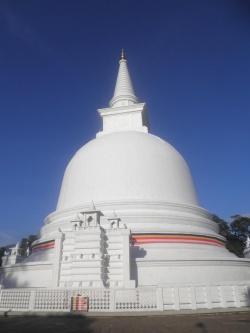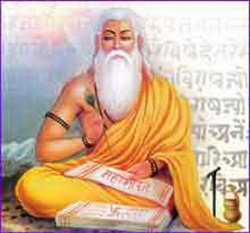Of Articulate Utterance During Jhāna
Of Articulate Utterance During Jhāna
Controverted Point: That there is articulate utterance on the part of one who has entered into jhāna.
You affirm this in general. Your statement should hold good for such an one everywhere, always, for all such persons, and for all such attainments in ecstatic meditation. But you do not admit all such cases. Then you cannot affirm it at all.
Does such an one make utterance by bodily movements? You deny that he does so, but why not, if your thesis is true? If he make no bodily expression, you should not affirm that he makes vocal expression.
If one during jhāna having the power of speech, gives vocal expression, it follows that, having a body, he may also make bodily expression.
You affirm that, knowing the fact of Suffering, he utters the word “Sorrow,” yet you deny that, knowing the fact of Cause of Suffering, he utters the word “Cause.” But why? Why, again, deny that he, knowing the facts of “Cessation” of Suffering, and “Path” leading to that Cessation, utters those words?
Or, taken negatively, why deny that he utters any of the last three terms, yet not deny that he utters the first?
You say that the object of such an one’s insight is the Ariyan truth. But you deny that the object of such an one’s ear is truth. This, you say, is sound. But you deny that the object of his insight is sound.
No, you say, the truth is the object of his insight, sound the object of his ear. But if his insight has the truth as its object, and his ear has sound as its object, then, good sir, you should not affirm that such an one mates articulate utterance.
If you say, that while his insight is concerned with the first truth and his ear with the sound, the attainer makes articulate utterance, you must admit a combination of two contacts, two feelings, two perceptions, two volitions, two consciousnesses at a given moment, (which is absurd).
You affirm your thesis, yet you deny that it applies to one who has attained jhāna by any one of the eight artifices, to wit, earth, water, fire, or air; blue-green, yellow, red, or white colour, or by any of the four immaterial conceptual inductions, to wit, infinity of space or of consciousness, “nothingness,” or “neither perception nor non-perception.” How is this intelligible? If you deny each of these possibilities, you cannot affirm your proposition.
You deny, further, that one who practises jhāna for merely mundane objects makes articulate expression, whether he attain any of the four stages. Neither then can you affirm your proposition. If you deny the former, you must deny the latter.
You affirm your proposition only of one attaining the first supramundane jhāna, not the second, third, or fourth. But if you affirm it of the first stage, what is there to make you deny it of the other three stages?
Puggalavādin: Is it wrong to say that there is articulate utterance on the part of one who has entered jhāna?
Theravādin: Yes.
Puggalavādin: But was it not said by the Exalted One that initial and sustained application of mind was vocal activity? And does not such application belong to one in first jhāna? Surely then my proposition is true.
Theravādin: Granting that you quote correctly, and that one in first jhāna is engaged in such application, I say, you have just denied that anyone attaining jhāna by any of the eight artifices does make articulate utterance. How then can you also affirm your proposition?
Puggalavādin: But was it not said by the Exalted One that speech arises from initial application or directing of thought? And does not such movement of thought belong to one in first jhāna?
Theravādin: That is no good reason. The Exalted One also said that speech is caused by perception. Now one in second, third, or fourth jhāna has perception, but we know that he no longer applies or sustains thought. So also for the four more abstract jhāna states (see Kv2.5.8).
Moreover, is it not said in the Suttanta:
“In one who has entered first jhāna speech has ceased.”
If you maintain your proposition in the teeth of this one, you must cease to hold in accordance with the next words in the Suttanta: that
“In one who has entered second jhāna, thought initial and sustained has ceased.”
Similarly you must contradict the remaining words:
“In one who has entered third jhāna, zest has ceased; in one who has entered fourth jhāna, respiration has ceased; in one who has entered the sphere of infinite space, perception of bodily qualities has ceased; in one who has entered the sphere of infinite consciousness, perception of space infinity has ceased; in one who has entered the sphere of nothingness, perception of infinity of consciousness, ceased; in one who has entered the sphere wherein is neither perception nor non-perception, preception of nothingness has ceased; in one who has entered the cessation of perception and feeling, both perception and feeling have ceased.”
Puggalavādin: But if my proposition is wrong, why did the Exalted One say that “for first jhāna sound is a thorn”? Does not this show that one who has attained jhāna can emit speech?
Theravādin: You accept both the Suttanta dictum and your proposition. But, by the same Sutta, that which is eliminated successively, as each further stage of jhāna is reached, was pronounced to be a thorn in its turn. Does that therefore indicate that one who attained each stage, practised each obstacle to that stage?
Puggalavādin: But did not the Exalted One say in the Suttanta:
Ānanda, Abhibhūto, disciple of Sikhin, the Exalted One, Arahant Buddha Supreme, standing in the Brahma-world, lifted up his voice over ten thousand worlds, saying:
“Arise and strive! go forth and give
Yourselves unto the Buddha’s Rule!
Sweep ye away the hosts of Death
As elephant a rush-built shed.
Who in this Dhamma and Discipline
Earnest and zealous shall abide,
Casting away the round of births,
He shall make utter end of Suffering”
Surely then an attainer does utter articulate sounds during ecstasy.



